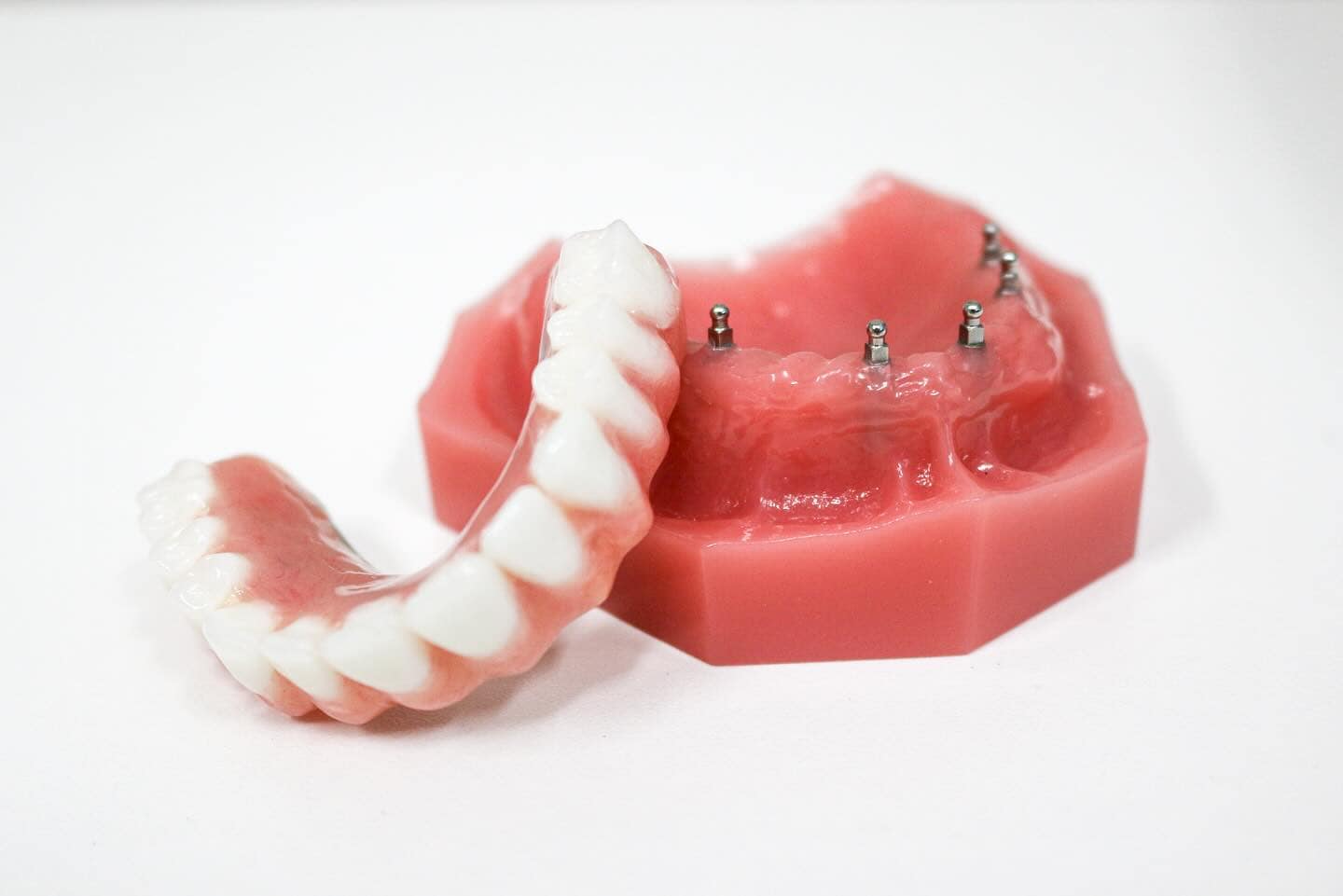If you’ve ever slipped on someone else’s glasses—just out of curiosity—you know how disorienting it can be. What brings clarity to one person might leave another with double vision and a growing headache. Even when the problem is the same, the fix isn’t always identical. That’s the thing about prescriptions: they only work when they’re made for you. Tooth replacement works the same way. Just because two people are missing teeth doesn’t mean they need the same solution. Some rely on full dentures to restore daily function, while others only need a partial to fill the gaps. What’s helpful for one mouth might feel awkward or overwhelming in another. The first step isn’t choosing a product—it’s figuring out what fits you. At Vegas Dental Experts, we can help you take that first step.
Full and Partial Dentures: How Are They Different?
When patients experience tooth loss, dentures offer a reliable path back to everyday function. However, not all dentures serve the same purpose. The key distinction between full and partial dentures lies in how many teeth need to be replaced and how they stay in place.
Full dentures are for individuals who no longer have any natural teeth in one or both arches. They sit directly on the gums and consist of a full row of artificial teeth attached to an acrylic base that resembles natural gum tissue. They rely on natural suction, especially in the upper arch, or dental adhesive to remain secure throughout the day.
Partial dentures replace several missing teeth while using the remaining natural teeth for support. They feature a base and tooth design similar to full dentures but include clasps or precision attachments that anchor the appliance to existing teeth. This connection helps keep the denture stable and reduces unwanted movement.
The core difference is straightforward: full dentures replace all teeth in an arch, while partial dentures work with remaining teeth to complete the smile. Choosing between the two depends on how many teeth are missing and the overall condition of the mouth.
Full and Partial Dentures: How Dental Implants Can Help

While traditional dentures offer a dependable solution for missing teeth, some patients seek more stability—or a longer-lasting investment in their oral health.
A Closer Look at Full Dentures
Full dentures effectively restore a complete smile, but many patients notice that their denture feels looser over time. This happens because the jawbone naturally begins to shrink after tooth loss. Without roots to stimulate the bone, the shape of the jaw gradually changes. As a result, dentures no longer fit as securely and may require frequent relining or replacement to maintain comfort and function.
By placing dental implants into the jaw, Dr. Chin can create a much more secure foundation for your full denture. These implants bond directly with the surrounding bone in a process called osseointegration. Once integrated, the implants act like artificial tooth roots. They help preserve bone volume by stimulating the jaw during daily function—something traditional dentures can’t do.
Implants also eliminate the need for adhesives, offering dependable support without the mess or hassle. The result is a full denture that feels more natural and stays firmly in place while you eat, speak, and go about your day.
Improving Partial Denture Support

Partial dentures fill gaps left by missing teeth, but like full dentures, they don’t interact with the jawbone. Bone loss in these areas can continue over time, eventually affecting the neighboring teeth that the partial denture relies on for support. As bone volume shrinks, the fit of the partial can become unstable—and the surrounding teeth may begin to shift.
One effective solution is an implant crown or bridge. Instead of attaching to nearby teeth, the final restoration anchors directly to dental implants Dr. Chin places into the jaw. This structure provides stable, long-term support without putting pressure on natural teeth. It also protects against further bone loss, helping preserve both your bite and your appearance.
Your Dental Implant Options at Vegas Dental Experts
Dental implants have transformed the way patients approach tooth replacement. But just like dentures, implants aren’t a one-size-fits-all solution. Every patient’s needs, goals, and oral health conditions are different—and those differences matter when deciding which type of implant makes the most sense.
Traditional implants are the standard in full-tooth replacement. At around 5 millimeters in diameter, they require a strong and stable section of bone for successful placement. These implants offer predictable, long-term results for patients with adequate bone volume and good general health.
However, not all patients meet the criteria for traditional implants. Bone loss from years of missing teeth, medical conditions, or simply age can affect whether this option is viable. In addition, traditional implants often require more invasive surgery, multiple procedures, and extended healing time—factors that can make this route less appealing or even unsuitable for some individuals.
To offer more flexibility, Dr. Chin also provides mini dental implants and MagiCore® implants. These implants are narrower in diameter and require less bone for placement. They can achieve strong primary stability even in areas with reduced bone volume. Because the placement process is minimally invasive, most patients experience less discomfort, fewer appointments, and a quicker return to their daily routine.
Your Smile, Your Comfort, Your Choice
There’s no single fix for missing teeth—only the one that fits you. At Vegas Dental Experts, we don’t push one-size-fits-all solutions. Dr. Chin will take the time to understand your needs, your comfort level, and your long-term goals before making any recommendations.
If you’re curious about what might work best for your smile, we’re here to talk—no pressure, no obligations, just honest answers. Schedule a free consultation, and let’s find out what makes sense for you.